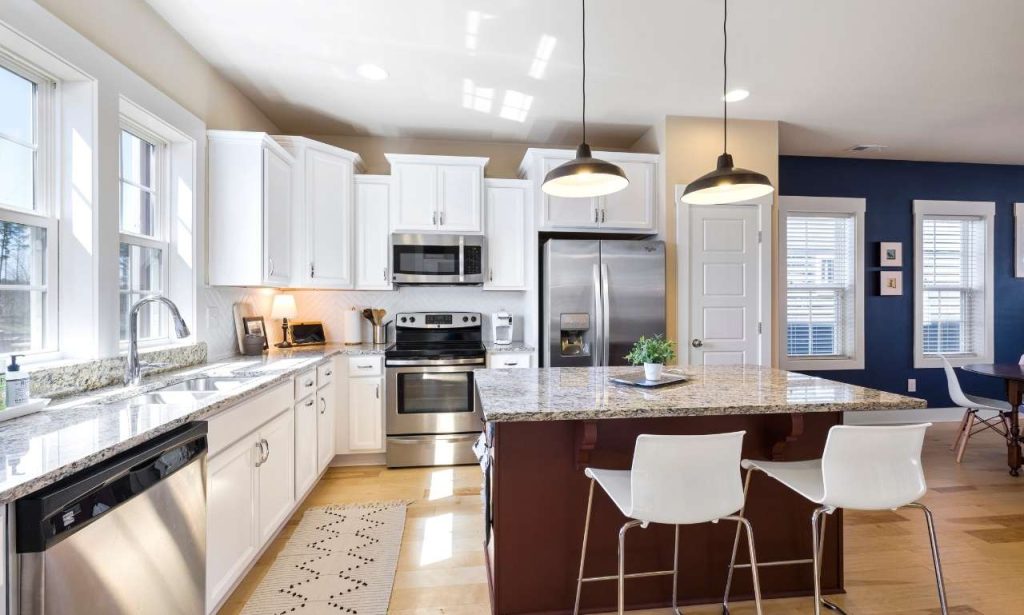Let’s face it – not all hostels are created equal. The difference between an excellent and terrible trip often comes down to where you lay your head at night. Budget travelers and digital nomads know this truth all too well. A bad hostel can drain your energy and ruin your experience of an otherwise beautiful destination.
The good news is that you can avoid hostel disasters by researching and knowing what to look for. I’ll share my proven checklist, which has saved me from countless hostel horror stories. These tips come from real experience, not just theory. Let’s jump into the key factors that separate wonderful hostels from the worst ones you’ll want to avoid.
Is There a Common Room?

The standard room might be the most essential feature of any good hostel. It serves as the heart and soul of the hostel experience, and a well-designed common area creates natural opportunities to meet fellow travelers.
I once stayed at a hostel in Barcelona that had no shared space. Guests had nowhere to gather except their cramped dorms, and the social atmosphere was completely missing. Everyone stayed in their beds, scrolling through their phones instead of connecting.
The best hostels prioritize communal spaces that encourage interaction. Look for standard rooms with comfortable seating, games, books, and a TV. These features create a relaxed environment where travelers naturally start conversations.
When booking, check photos carefully for shared spaces. Read reviews specifically mentioning the social atmosphere. Fellow travelers will quickly call out hostels lacking this crucial feature.
Is It Centrally Located?
Location can make or break your hostel experience in more ways than one. A centrally located hostel saves you time and money on transportation costs. It also maximizes your exploration time.
I learned this lesson the hard way in Prague. The hostel seemed perfect online but was far from the city center. We wasted hours each day on public transportation, and the money we saved on accommodation disappeared into transit costs.
Prioritize hostels within walking distance of major attractions or at least near public transportation stops. This strategy gives you more flexibility with your schedule. You can easily pop back to rest during the day or stay out late without worrying about the last bus.
Remember that “central” means different things in different cities. Research what neighborhoods are central for travelers, not just geographic center points.
Is It Clean?
Cleanliness might seem obvious, but it’s surprising how many hostels fail this basic test. No discount is worth staying somewhere that makes you feel gross. Trust me on this one.
Look for recent reviews specifically mentioning cleanliness. Pay special attention to comments about bathrooms and kitchens. These high-traffic areas reveal how seriously management takes hygiene protocols.
I once ignored warning signs about a “quirky” hostel in Budapest. The cheap price and a few negative cleanliness reviews are worth overlooking. That mistake led to three nights of avoiding touching anything in the shower without shower shoes.
Photos can be deceiving, as they’re usually taken when the place is spotless. Recent guest reviews provide a more accurate picture of day-to-day cleanliness standards.
Did You Read the Reviews?

Reviews are your most powerful tool for avoiding bad hostels. Fellow travelers have no reason to lie about their experiences, and their honest feedback can save you from making costly mistakes.
Don’t just skim the overall rating. Dig deeper into specific comments about factors that matter to you. Are you a light sleeper? Look for mentions of noise levels. Are you a digital nomad? Check reviews about Wi-Fi reliability.
I recommend reading at least 15-20 recent reviews before booking any hostel. This approach has saved me countless times from places that looked great in photos but disappointed in reality.
Pay special attention to recurring complaints across multiple reviews. One person mentioning noisy neighbors might be bad luck. Five people mentioning paper-thin walls indicate a structural problem.
Do They Organize Group Activities?
Group activities transform good hostels into unforgettable experiences. They provide structured ways to meet people and explore your destination; even introverts appreciate these optional social opportunities.
The best hostels organize activities like family dinners, pub crawls, or walking tours. These events create instant connections between guests who might otherwise never speak to each other.
I stayed at a hostel in Lisbon that organized nightly family-style dinners. The chef prepared amazing Portuguese dishes while guests worldwide shared travel stories. These dinners became the highlight of my entire stay.
Check hostel descriptions and reviews for mentions of organized activities. Hostels’ community-building efforts speak volumes about their overall quality and commitment to guest experience.
Is There a Late Checkout?
Late checkout options show that a hostel respects travelers’ unpredictable schedules. This small courtesy makes a huge difference when you have a late flight or bus departure.
Good hostels understand that forcing everyone out by 10 AM creates unnecessary stress. They offer flexible options like baggage storage, shower access, or affordable extended checkout rates.
I once had a night bus leaving at 11 PM from Kuala Lumpur. The hostel allowed me to keep my bed until 8 PM for just $5 extra. This small accommodation saved me from wandering the streets with my backpack for hours.
Before booking, check their checkout policy. Flexible hostels typically mention late checkout options directly on their website or booking platform.
Is There a Bar?
Depending on your desires, a hostel bar can be a blessing or a curse. Party hostels with bars attract social butterflies looking to meet people and have fun, while quieter travelers might prefer hostels without this feature.
If you’re seeking peace and quiet, avoid hostels that heavily promote their bar or party atmosphere. These places often have noise lasting well into the night.
Conversely, a hostel bar provides a convenient meeting place if you want to socialize. You don’t have to venture out to find nightlife – it’s right downstairs.
Be honest about what kind of experience you want. There’s no right or wrong choice; it’s just what best suits your travel style.
Do They Have Lockers?
Security should never be compromised, especially in shared accommodations. Lockers are a non-negotiable feature of quality hostels. They provide peace of mind while you’re out exploring. I once stayed at a hostel in Vietnam that did not have secure storage options. Worrying about my passport and electronics ruined what should have been a carefree beach vacation.
Good hostels provide sturdy lockers large enough for backpacks or at least valuable items. Even better are hostels with lockers featuring built-in power outlets for charging devices while secured. Always check if lockers are included or require an extra fee. Some hostels charge for locks or have a limited number of lockers available.
Is There a Kitchen?

Access to a kitchen can significantly impact your budget and experience. Preparing even simple meals saves money that can go toward activities instead. Kitchens also create natural social spaces where travelers connect.
I met some of my favorite travel companions while cooking in hostel kitchens. Preparing food together breaks down barriers between strangers faster than anything else.
Hostels that offer kitchens with basic cooking facilities, including stoves, refrigerators, microwaves, and standard kitchen equipment, are your best choice. Free provisions such as oil, salt, and coffee earn additional points from hostel guests.
Guest reviews usually discuss the cleanliness and practicality of the kitchen area. Comments on peak mealtime crowds create difficulties with cooking.
Conclusion
Your travel experience strongly depends on the selection of the right hostel. Hostels provide their guests with budget-friendly housing opportunities, which combine budget-friendly housing with a sense of community and convenient access to amenities. Your travel experience can suffer irreparably from staying at a poor hostel facility.
The 12 factors were established as a dependable system to prevent hostel-related problems. Implementing this checklist significantly improved my travel experiences, which now deliver consistently positive results.
Hostels that match your personal needs constitute the best option for each traveler. You need to be honest about the features that are most important to you. Travelers have different preferences for social environments and private spaces.
Researching these factors quickly will generate enormous benefits for your travel enjoyment. In the future, you will appreciate the time you spent on preparation.
Also Read: What to Do in Cuba for a Week
FAQs
Hostelworld remains the most comprehensive platform with detailed reviews and reliable booking systems.
Book 2-3 weeks ahead for regular periods and 1-2 months for peak seasons or special events.
Many hostels offer female-only dorms and enhanced security features for women’s safety concerns.
Always bring earplugs, an eye mask, padlock, shower shoes, and a quick-dry towel for comfortable hostel stays.
Many modern hostels cater to remote workers with dedicated workspace areas and reliable WiFi.




